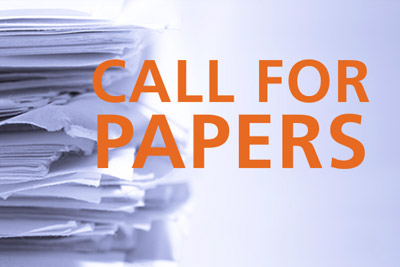
Call for Proposals – Pedagogical Essays about “Truth” and Non-Fiction
• 100-200 word proposals due May 15, 2019
• Pedagogical Essays of 1,000-3,000 words due August 15, 2019
• Publication: Spring 2020
The guest editors of a special issue of Assay: A Journal of Nonfiction Studies seek proposals for essays that discuss pedagogies for and pedagogical approaches to teaching nonfiction, particularly in writing studies courses.
The Pedagogy section asks authors to explore how they navigate claims to truth in non-fiction genres that emphasize performances of self-narrativity and self-disclosure in both the texts they assign in courses and in the writing that students do. How do teachers navigate this terrain when they assign nonfiction and when they assign writing to students? One question authors might consider is how critical engagements with the discursivity of knowledge intersect with activist modalities, including testimony and witnessing.
Questions? Email Brenda Glascott at glascott@pdx.edu
Please send your proposals for the Pedagogy section, including keywords and a brief bio, directly to Brenda. Please indicate “pedagogy section” on your proposal.
About the Special Issue
Assay is thrilled to announce:that our Spring 2020 issue (6.2) will be guest edited and themed around nonfictional forms, as they relate to mediated concepts of truth and reality, and with a particular hope that the texts and writers will come from outside the United States. Our guest editors are Anastasia Ulanowicz (University of Florida), Manisha Basu (University of Illinois-Urbana-Champaign), and Brenda Glascott (Portland State University) and speaking as Assay’s editor, I’m so excited about how they’re going to bring their conversations to our audience, with formal scholarship, informal analysis, and pedagogy. If you’re not familiar with their work, please check them out!
The theme of the issue will be significantly informed by critics such as Rob Nixon, Henry Twidle, Walter Benn Michaels, and Ian Jack, who have each accounted for a late 20th and early 21st century “boom” on the global stage of non-fictional forms of engagement. However, unlike these scholars, this special issue seeks to understand not why a particular narrative form emerges at a particular time, but what its effects are in its particular context. What, they ask, do the kinds of textual transactions that constitute the nonfictional turn have to do with what Rob Nixon has called “the cultural industrialization of the real”: who do they speak for, why do they matter, and to whom? In the face of authoritarian appropriations of reality, nonfictional textualities foreground the crucial idea that reality does not exist outside the regimes for its own production and circulation—and they demonstrate how those regimes may in fact be transformed to constitute a new politics of reality.
Global nonfiction. Forms of nonfiction. Authors of nonfiction outside the United States. India. Australia. Eastern Europe. Ireland. Graphic nonfiction. Memoir. Literary journalism. Essays.
These subjects—and their writers— have long been of interest to us at Assay and we’re so excited to spend an entire issue on them. While this issue will consider the ideas of mediated reality, we are not interested in the American arguments over truth-vs-fact. That said, we’d love to see work that challenges these ideas in other contexts.
We hope the issue investigates what we might call “a commerce of textualities” by reading literary/creative/narrative non-fictional works constituted in mixed modes of writing at the intersection of journalism, life-writing, history, urban-studies, and archival reconstruction, and technology.
As always, Assay is interested in the wide variety of how analysis of these writers and texts can happen, from formal articles, to more informal analysis suitable for our Conversations section, and nonfiction pedagogy. If you have questions or queries, please send us a note at assayjournal@gmail.com. Please share our CFP among your colleagues and students who might be writing seminar papers or conference papers as we speak.
You might consider a proposal on (but of course your idea should not be limited to what’s here)—
- the long-standing tradition of colonial/anti-colonial travel writing (and who is doing the travel writing outside of the American tradition? Perhaps you might consider writing on Dervla Murphy or Jan Morris?)
- the impact of Tom Wolfe and the new journalism (1970s), but you might also consider how Nellie Bly might fit into this conversation.
- the significance for investigative journalism of the ‘history from below’ series at the University of Witwatersrand (1980s)
- the influence of Slavenka Drakulic’s Café Europa (1996) in altering Soviet-era assumptions of the essay as a self-interested form
- the increasing demand for a dynamics of testimony, globally, in the shadow of the HIV/AIDS crisis
- Svetlana Alexievich’s “polyphonic writings” with the Nobel prize for literature in 2015 (she’s the first woman to win for nonfiction and we haven’t seen any submissions on her since her win—we’d like to change that).
- the emergence of graphic memoirs and graphic reportage (e.g., Joe Sacco, Igort, and don’t miss Reshmi Mukherjee’s piece on Kate Evans from the Spring 2019 issue.)
- the significance of epistolary forms and diaries as nonfiction forms
- critical methodologies in archival research
- the emergence of new approaches to Indigenous literary and cultural forms (e.g., the peoplehood matrix)
- the pedagogy of these writers, texts, and considerations in literature classrooms, composition and rhetoric classrooms, as well as creative writing classrooms. (As always, the pedagogy needs to be analytical and based in theory, not simply lore.)

Leave a Reply